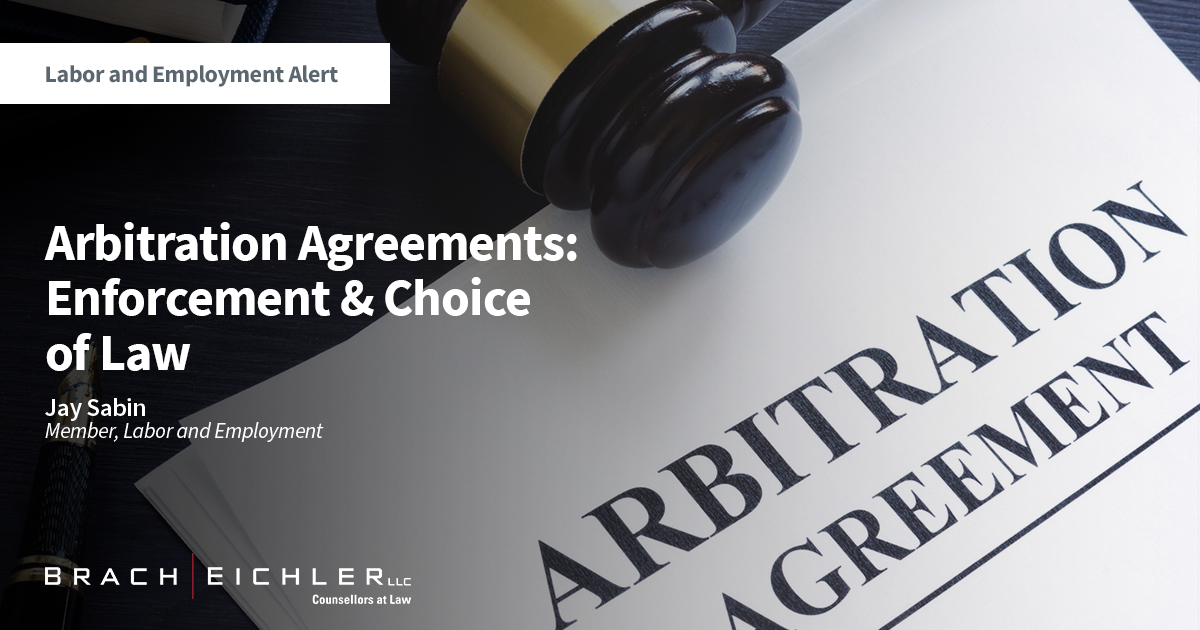Arbitration Agreements: Enforcement & Choice of Law

March 28, 2024
Arbitration Agreements: Enforcement & Choice of Law
A recent New Jersey appellate court decision highlights the importance of properly structuring mandatory arbitration provisions. In Aguirre v. CDL Last Mile Solutions, the court concluded that, even though the arbitration agreement stipulated New York law, New Jersey law would apply to the company’s New Jersey based staff members, and under New Jersey law the arbitration provision was unenforceable. Every employer with staff in New Jersey should become familiar with how to structure an enforceable arbitration agreement for those service providers.
The Background
The company, a logistics provider, was headquartered in New York and operated a warehouse in New Jersey. It desired to have all staff-related disputes resolved by arbitration. To accomplish that it required all staff members to sign an agreement that provided that all “disputes, claims, questions, or differences . . . . will be finally settled by arbitration under the policies of the Federal Arbitration Act and New York State’s Arbitration provisions.” The agreement also provided that it “shall be governed by the laws of the State of New York.” For extra measure, the agreement included in all capital letters a warning that it contained “a binding arbitration provision . . . which affects your legal rights” and gave each staff member the opportunity to opt out of binding arbitration.
The Lawsuit
Three disgruntled staff members brought a class action lawsuit on behalf of each staff member who worked in New Jersey. The lawsuit claimed that the company had failed to pay overtime and had unlawfully deducted amounts from each staff member’s wages, all in violation of the New Jersey wage and hour and wage payment laws.
The company responded to the suit by requesting that the court order arbitration and otherwise dismiss the case. The trial court declined to do so. It found that New Jersey law, not New York law, applied because New Jersey law is more protective of a citizen’s right to a jury trial than is New York law. From that proposition it concluded that the arbitration provision was not enforceable under New Jersey law because it had not clearly enough warned the staff members that they were foregoing their right to a jury trial. The appellate court affirmed this decision.
The Takeaways
Aguirre undermines the adage that a contract should mean what it says. Not so when it comes to choice-of-law provisions. Some states such as New Jersey require that the transaction or services have some meaningful connection to the state chosen; if not and if the laws of the two states diverge, then the selected state law will not be applied.
Aguirre also runs counter to the general judicial trend to enforce arbitration agreements. The U.S. Supreme Court has repeatedly held that arbitration agreements (at least those governed by the federal arbitration law) should be construed uniformly across the country, yet Aguirre turned on the differences between New Jersey and New York law.
For questions regarding this alert, or with any other labor and employment issue, please contact:
Jay Sabin, Esq., Member, Labor and Employment Practice, at jsabin@bracheichler.com or 917-596-8987.












